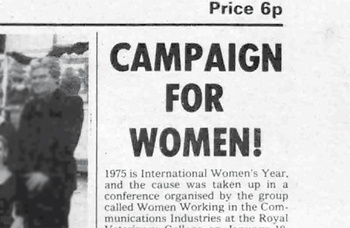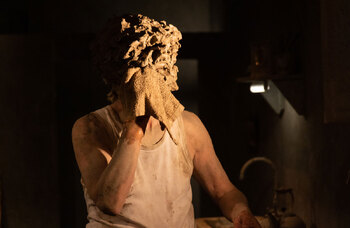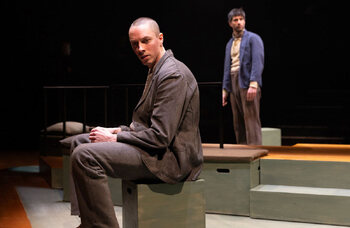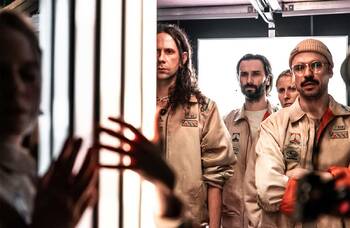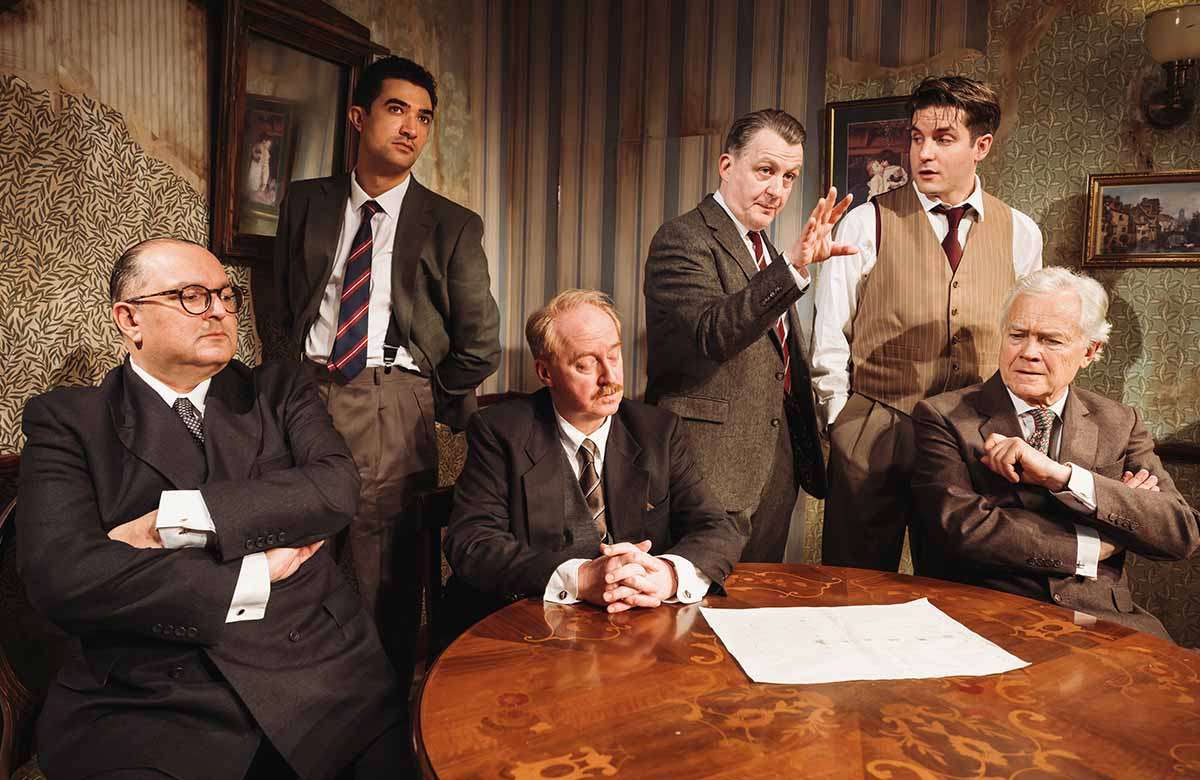
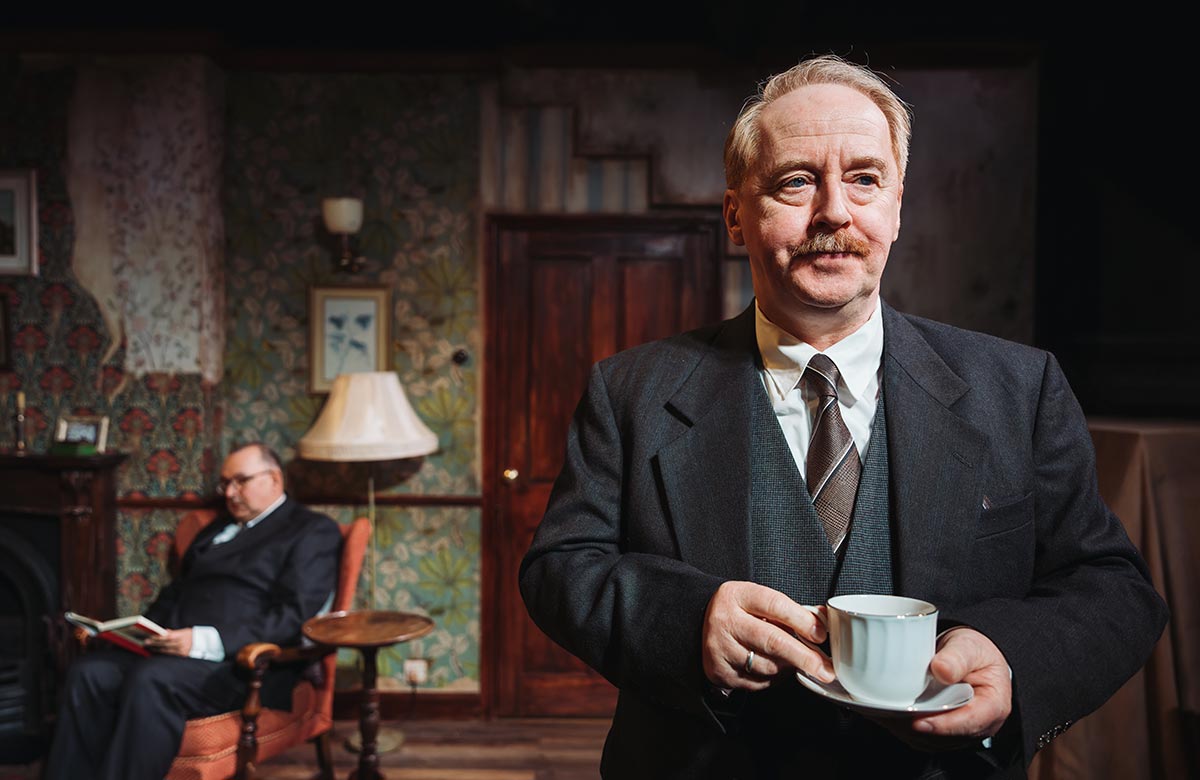
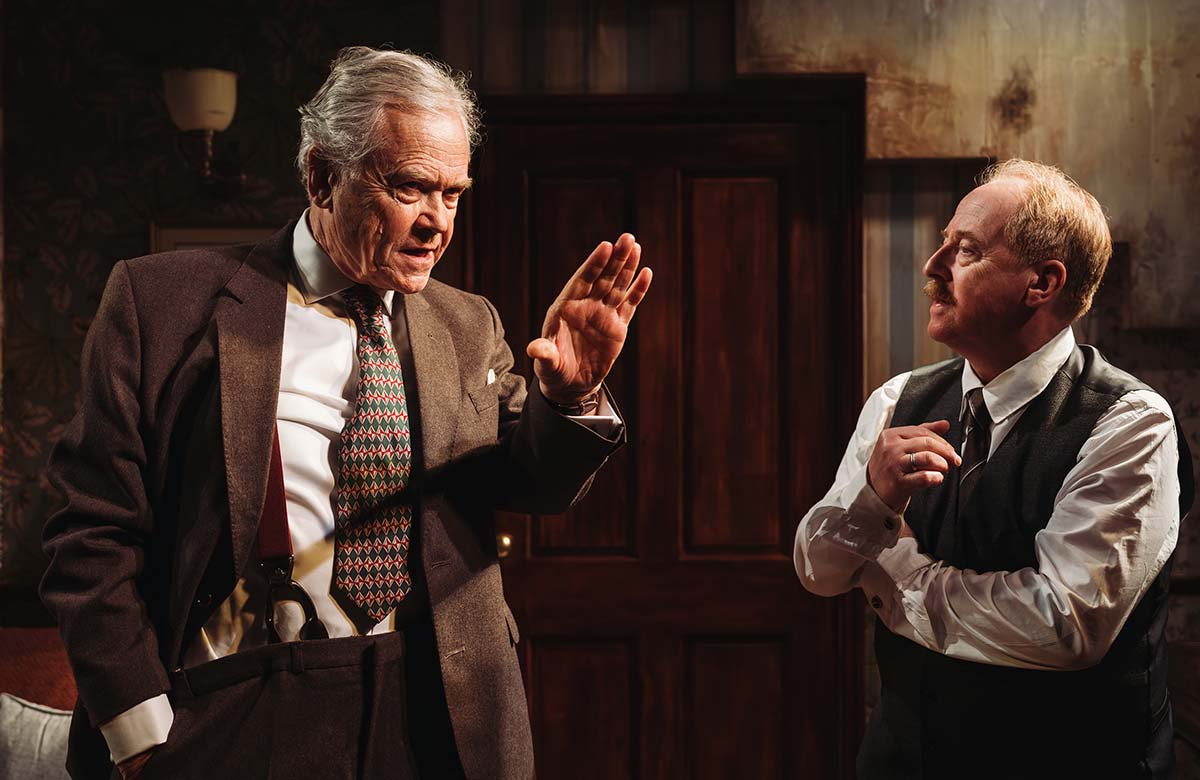
Complex and fascinating true story about six of Germany’s top nuclear scientists
A country house, five disgruntled men and a lot of back-and-forth dialogue about morality: it’s odd to see a new play that is so unapologetically old-fashioned. But historian Katherine Moar’s debut slowly reveals great complexity, and over the course of 90 minutes its grip tightens.
At the end of the Second World War, 10 German scientists were detained and transported to Farm Hall, a stately home in Cambridgeshire, where they lived for seven months. Some were part of Hitler’s notorious Uranium Club – nuclear physicists working towards breakthroughs in nuclear power. What the scientists didn’t know was that the house was bugged, with the Allied Forces hoping to find out how close the Germans had come to developing an atomic bomb. Basing her play on these transcripts, Moar focuses on six of the scientists, letting their clashing personalities rub together in the confines of the house.
It’s a traditional form, and Stephen Unwin’s production responds in kind. The constant shifting of crystal glasses on trays and piles of books feels too fussy, but the literalism of the staging means that little gets in the way of Moar’s script. It also gives designer Ceci Calf a chance to show off some rather lovely wallpaper, ripped and peeling from the comfortable sitting room, as well as a fashion parade of fine period suits.
As various combinations of the sextet pop in and out of the room, they talk about everything except science. “There’s a cat in the garden,” says Kurt Diebner (a wonderfully acid Julius D’Silva), the most exciting thing that’s happened that day. They play chess, they read, squabble, mend a piano, put on an all-male production of Blithe Spirit.
But, as time passes, they clash. We find out that Erich Bagge and Diebner were, in the interests of self-preservation and selfish advancement, card-carrying members of the Nazi Party. David Yelland’s furrowed, stately Max von Laue refused to join; Alan Cox’s inscrutable Werner Heisenberg consistently told Hitler’s government that the creation of an atomic bomb was not possible. Was he incompetent or deliberately slowing progress to stop the unthinkable? Then the bomb drops on Hiroshima and the scientists are completely blindsided. Some feel ashamed that German advancements – Forbes Masson’s jovial Otto Hahn discovered nuclear fission – led to American ‘success’. Others are disgusted that the bomb was deployed at all.
Anchored by strong performances, it’s a straightforward production of a deeply complex play. Moar never tells us what to think about these men. She lets conflicting ideas brew: ideas about shame, national and personal pride, and culpability. Occasionally Unwin puts pressure on the fourth wall – a few of the more serious lines come straight at the audience, weightily and portentously delivered, and it feels patronising. But when the action stays in the room, between these characters, and we’re the eavesdropping bugs, the piece finds its greatest power.
More Reviews
Recommended for you
More about this organisation
More Reviews
Recommended for you
Most Read
Across The Stage this weekYour subscription helps ensure our journalism can continue
Invest in The Stage today with a subscription starting at just £5.99





